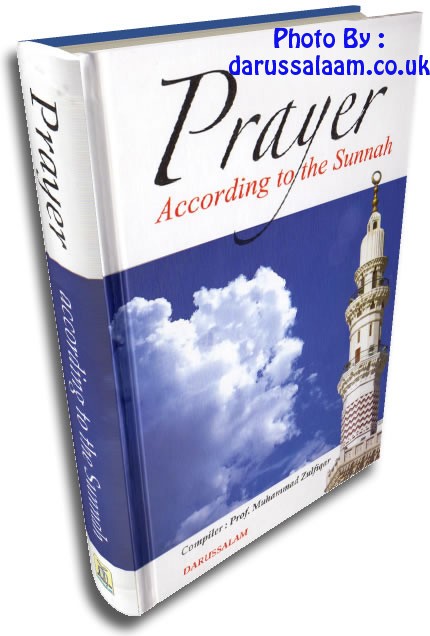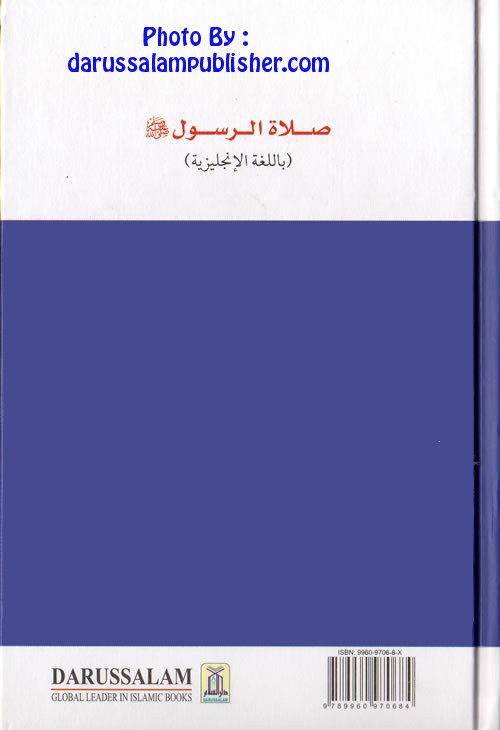- Home
- Free And Cheap Islamic Books
- Islamic Books
- Halal Perfumes
- The Birthday Of The Prophet
- Khutbah on the Occasion of the Prophet's Brithday
- Ruling On Celebrating
- Dangers in the Home
- April Fool
- Rulings On Divorce And
- Khula’ Is Not Regarded As A
- He Swore By Something Other Than Allah That He Would Divorce His Wife
- Does She Have The Right To Ask For Divorce
- Is It Permissible To Ask Allah For His Wife
- Salah at-Taraweeh (The Night Prayer)
- Salatul-Istikharah
- Why People Accept Islam?
- Hijaab
- The Hijab .. Why ?
- Hijabed like Me:
- Real Happiness In front of you
- Why So Many Religions?
- What Does Islam Say about Terrorism?
- Polygamy in Islam
- A Letter from a muslim girl to her christian parents
- Islam is the fastest growing religion in the world especially since sept. 11.
- Major Canadian Christian Missionary Con-verts to Islam
- Cat Stevens & His Journey to Islam!
- (1) 7 Reasons to Read the Glorious Quran
- Scientific Accuracy of the Quran Amazes Univer-sity of Toronto Professor
- Why Mrs. Cecilla Cannoly accepted Islam?
- How Dr. Benoist accepted Islam?
- 10 Points of Enlightenment on What Prophet Muhammad
- Advice to the Students of Knowledge
- Some Misconceptions about Women in Islam
- Choosing a School and Friends for your Child
- Three Common Mistakes made after Prayer
- Guidelines for the Husband in Interacting with his Wife
- Are Muslim women oppressed?
- 12 Stops With Those Celebrating The Prophet's Birthday
- How to End Racism!
- The Boy who Broke His Father's Idols!
- How to Train your WillPower to Work for You?
- A sister from the Gulf embraces Islam
- Celebrating Valentine’s Day
- Valentine Day, Birthdays, and Other Days
- Who is Valentine?
- The History of Christmas
- What Did Jesus Say About Christmas?
- Christmas and Islam
- Ruling on Christmas & New Year
- The History of Ashurah
- The Manners of Joking
- Ruling on celebrating non-Muslim holidays and congratulating them
- Islam And Terrorism
- Ruling on celebrating the middle of Sha’baan
- The People of Bliss
- Polishing the Hearts
_Salah at-Taraweeh (The Night Prayer). By: Dr Abu Ameenah Bilal Philips
Click on the Image Make Free Account And Start Earn Money With TheAdsTeam
Taraweeh literally means “rest pauses.” This name was given in later generations to the night prayer during Ramadan because of the pause observed after every four rak’ahs (units of prayer). The name was not used by the Prophet (sallallahu ‘alayhi wa sallam) neither did he pray twenty rak’ahs. In fact, he called it Salatul-Layl and prayed eleven rak’ahs, consisting of two sets of four rak’ahs with three rak’ahs of witr.
Abu Salamah ibn ‘Abdur Rahman reported that he asked ‘Aaishah, “How was Allah’s Messenger’s (night) Salah in Ramadan? ‘Aaishah replied, ‘Allah’s Messenger never used to exceed eleven rak’aat in Ramadan or other months. He would pray four rak’aat –don’t ask me about their beauty and length – then four more rak’aat – don’t ask me about their beauty and length either – then he would pray three more.”[1]
This prayer can be observed individually at home or as a group in the Masjid, as the Prophet (sallallahu ‘alayhi wa sallam) did both.[2]
The Merits of Taraweeh
The night prayer is a means of gaining Allah’s forgiveness for sins done in the past, if the prayers are sincerely done. The Prophet (sallallahu ‘alayhi wa sallam) was quoted by Abu Hurayrah as saying, “Whoever prayed at night throughout the month or Ramadan out of sincere faith and hoping for a reward from Allah will have all of his previous sins forgiven.” [3]
He also reported the Prophetic statement, “Whoever faithfully established prayers on the Night of Power (Laylatul-Qadr), seeking his reward only from Allah, will have his past sins forgiven.”[4] This special night is a great mercy and blessing from Allah. Worship during Laylatul-Qadr equals about 83 years (1,000 months) of worship, as stated by Allah,
“The Night of Power is better than a thousand months.” (Surah al-Qadr (97:3)
It is also recommended to spend the last ten days and nights of Ramadan in seclusion in the mosque (itikaf), as the Prophet (sallallahu ‘alayhi wa sallam) used to do. ‘Aaishah stated, “The Prophet (sallallahu ‘alayhi wa sallam) used to seclude himself in the Masjid during the last ten days of Ramadan until he died, and his wives continued the practice after him.”[5]
----------------------------------------------------
[1] Collected by al-Bukhari (Sahih Al-Bukhari (Arabic-English), vol.3, p. 128 no.230.)
[2] Hadith Book Sahih Al-Bukhari (Arabic-English), vol.3, pp 127-8 no.229.
[3] Collected by al-Bukhari (Sahih Al-Bukhari (Arabic-English), vol.3, p. 126, no.227.
[4] Collected by al-Bukhari (Sahih Al-Bukhari (Arabic-English), vol.3, p. 69-70, no.125).
[5] Collected by al-Bukhari (Sahih Al-Bukhari (Arabic-English), vol.3, pp. 135-6, no.243) and Muslim (Hadith Book Sahih Muslim (English Trans.), vol.2, p.575, no.2640).
Abu Salamah ibn ‘Abdur Rahman reported that he asked ‘Aaishah, “How was Allah’s Messenger’s (night) Salah in Ramadan? ‘Aaishah replied, ‘Allah’s Messenger never used to exceed eleven rak’aat in Ramadan or other months. He would pray four rak’aat –don’t ask me about their beauty and length – then four more rak’aat – don’t ask me about their beauty and length either – then he would pray three more.”[1]
This prayer can be observed individually at home or as a group in the Masjid, as the Prophet (sallallahu ‘alayhi wa sallam) did both.[2]
The Merits of Taraweeh
The night prayer is a means of gaining Allah’s forgiveness for sins done in the past, if the prayers are sincerely done. The Prophet (sallallahu ‘alayhi wa sallam) was quoted by Abu Hurayrah as saying, “Whoever prayed at night throughout the month or Ramadan out of sincere faith and hoping for a reward from Allah will have all of his previous sins forgiven.” [3]
He also reported the Prophetic statement, “Whoever faithfully established prayers on the Night of Power (Laylatul-Qadr), seeking his reward only from Allah, will have his past sins forgiven.”[4] This special night is a great mercy and blessing from Allah. Worship during Laylatul-Qadr equals about 83 years (1,000 months) of worship, as stated by Allah,
“The Night of Power is better than a thousand months.” (Surah al-Qadr (97:3)
It is also recommended to spend the last ten days and nights of Ramadan in seclusion in the mosque (itikaf), as the Prophet (sallallahu ‘alayhi wa sallam) used to do. ‘Aaishah stated, “The Prophet (sallallahu ‘alayhi wa sallam) used to seclude himself in the Masjid during the last ten days of Ramadan until he died, and his wives continued the practice after him.”[5]
----------------------------------------------------
[1] Collected by al-Bukhari (Sahih Al-Bukhari (Arabic-English), vol.3, p. 128 no.230.)
[2] Hadith Book Sahih Al-Bukhari (Arabic-English), vol.3, pp 127-8 no.229.
[3] Collected by al-Bukhari (Sahih Al-Bukhari (Arabic-English), vol.3, p. 126, no.227.
[4] Collected by al-Bukhari (Sahih Al-Bukhari (Arabic-English), vol.3, p. 69-70, no.125).
[5] Collected by al-Bukhari (Sahih Al-Bukhari (Arabic-English), vol.3, pp. 135-6, no.243) and Muslim (Hadith Book Sahih Muslim (English Trans.), vol.2, p.575, no.2640).



